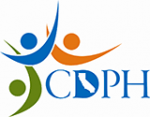Overview
Position Overview
The Illinois Department of Public Health is seeking a highly motivated individual to perform low level professional and advanced technical office support functions for the Health Care Worker Registry Program. This individual would receive and respond to inquires regarding the registry, status of background checks, and follow up which requires regular interaction with the public. In addition to typing, data entry and retrieval, electronic filing into existing databases, mass mailing, application processing, responding to inquiries from the public and other specialized office support functions, has the responsibility of maintaining the healthcare worker registry via the review, processing any data entry functions related to the Health Care Worker Registry. This individual actively mans and responds to inquiries in the Registry call line, responds to queries, reviews and processes background check information and data received from fingerprint vendors and healthcare providers.
Essential Functions
- Under supervision, receives and reviews for accuracy background checks submitted by health care employers and long-term care facilities.
- Coordinates records and reports functions related to the Registry including the preparation of reports, analysis, and spreadsheets for budget and statistical purposes.
- Represents the supervisor through routine oral and written contact with other governmental offices, long-term care providers, nurse aide training programs, businesses and the general public.
- Implements the mandates of State and Federal rules and regulations relating to the Health Care Worker Registry by entering information into the database related to substantiated findings of abuse, neglect, and misappropriation of property against individuals on the Registry.
- Assists in maintaining records of unit activities and formulating multi source information into reports.
- Performs other duties as required or assigned which are reasonably within the scope of the duties enumerated above.
About Illinois Department Public Health
In Illinois, if you have eaten at a restaurant ... required hospital or nursing home care ... vacationed at a campground or swam at a public beach or pool ... drank a glass of milk ... got married or divorced ... had a baby, the Illinois Department of Public Health (IDPH) has touched your life in some important way.
Assuring the quality of our food, setting the standards for hospital and nursing home care, checking the safety of recreation areas, overseeing the inspection of milk producing farms and processing plants, maintaining the state's vital records and screening newborns for genetic diseases are just some of the duties of IDPH.
In fact, IDPH has 200 different programs that benefit each state resident and visitor, although its daily activities of maintaining the public's health are rarely noticed unless a breakdown in the system occurs. With the assistance of local public health agencies, these essential programs and services make up Illinois' public health system, a system that forms a frontline defense against disease through preventive measures and education. Public health has provided the foundation for remarkable gains in saving lives and reducing suffering. Today, life expectancy is 80 years for women and 74 years for men compared with fewer than 50 years at the at the beginning of the 20th century.
In the past, IDPH directed state efforts to control smallpox, cholera and typhoid, virtually eliminated polio, reduced dental decay through fluoridation of community water supplies, and corrected sanitary conditions that threatened water and food supplies.
Today, IDPH has programs to deal with persistent problems that require continued vigilance – infectious diseases, such as AIDS (acquired immunodeficiency syndrome), HIV (human immunodeficiency virus), SARS (severe acute respiratory syndrome) and meningococcal disease; foodborne and communicable diseases, such as E. coli 0157: H7, monkeypox, salmonella and West Nile virus; vaccine preventable diseases; lead poisoning; lack of health care in rural areas; health disparities among racial groups, breast, cervical and prostate cancer; Alzheimer's disease; and other health threats -- sexually transmitted diseases, tobacco use, violence, and other conditions associated with high-risk behaviors. In addition, IDPH has been charged with handling the state's response to the COVID-19 pandemic and the threat of bioterrorism.
IDPH, which is one of the state's oldest agencies, was first organized in 1877 with a staff of three and a two-year budget of $5,000. IDPH, now has an annual budget of $2.9 billion in state and federal funds, headquarters in Springfield and Chicago, seven regional offices located around the state, three laboratories, and 1,200 employees.
IDPH is organized into 12 offices, each of which addresses a distinct area of public health. Each office operates and supports numerous ongoing programs and is prepared to respond to extraordinary situations as they arise.



